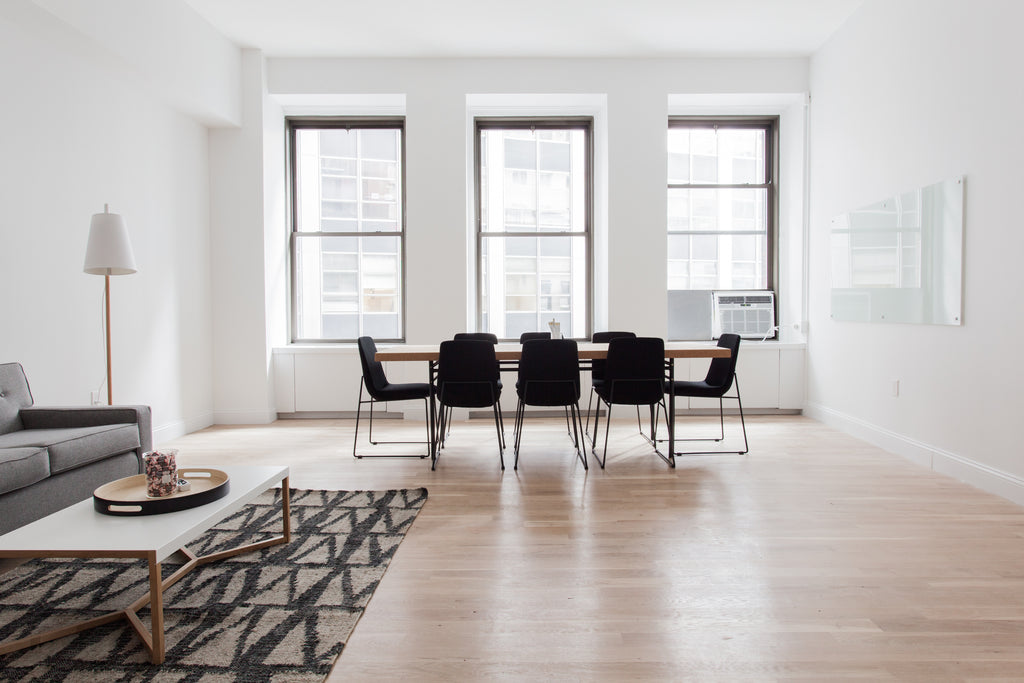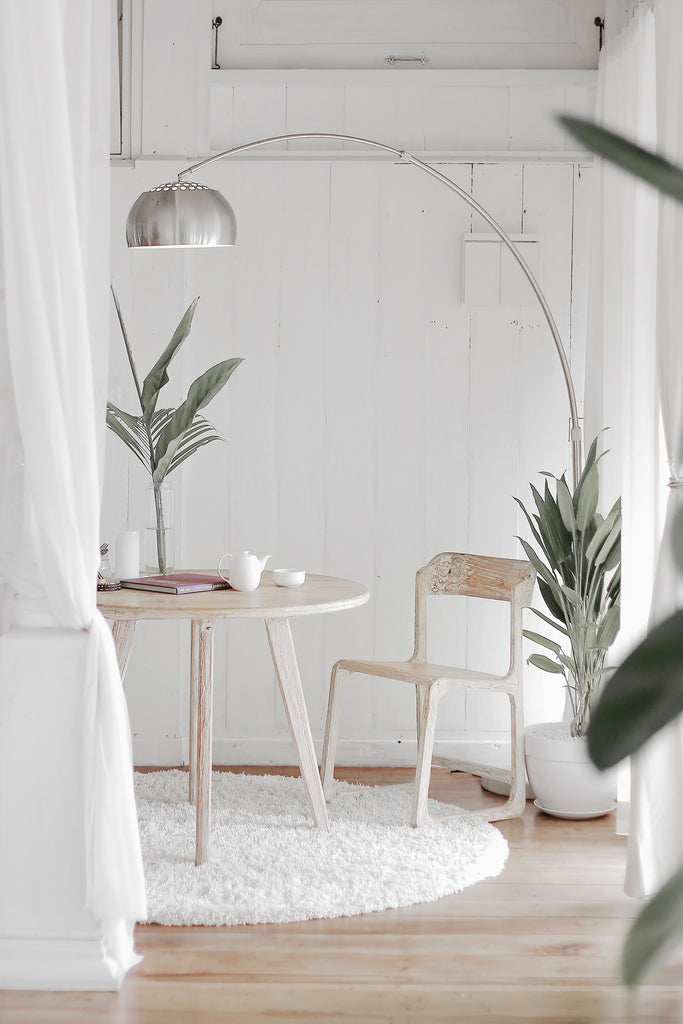What is the minimalism movement?
April 09, 2018 2 Comments
Minimalism. Maybe you’ve heard of minimalist art, theatre, or fashion, but the buzz phrase right now, is a minimalist lifestyle. If you haven’t been living under a rock, you’ve heard of it, and if you’re a few steps in front, you’re probably already living it.
This unsuspecting phenomenon has taken a rise in popularity over the last few years, but no one is wondering why. Stress levels have shot through the roof as technology takes over our social lives and expands our connections, our jobs get faster and busier, and our homes become filled with ‘stuff’. Meanwhile, minimalism sits there as a way out, and many of us are jumping on the band wagon.
But what is it?
Minimalism is the act of throwing all your beloved possessions away, quitting your job, living in a shoe box, and only wearing black and white, right? If you think this is the case, you’ve been fooled.
The real definition is explained wonderfully by Joshua Becker of Becoming Minimalist:
“Minimalism is the intentional promotion of the things we value most and the removal of everything that distracts us from it.”
Being intentional with your decisions and way you live your life, spend your money, your time, and your thoughts, describes minimalism best. Minimalists aren’t repulsed by objects, but choose those which bring purpose, leading us back to the word intentional which lies at the core of minimalism.
Living a minimalist lifestyle looks different to everyone. Some minimalists live in tiny homes on huge lifestyle blocks, some look like your normal everyday family in the suburbs, and others are roaming the planet with only a backpack in tow.
It’s no wonder minimalism is associated with the sustainable living world. Minimalism describes a way of living that involves less stuff, therefore, less rubbish and waste. But that’s not all it’s good for. Minimalism is found to reduce stress and make people happier. Having less ‘things’ requires less time spent on maintenance, like washing, dusting, fixing, replacing batteries, and generally worrying about the added things on your to-do list. A cluttered house doesn’t just represent a cluttered environment. The stress and stimulation of too many things, reflects on the emotions of individuals living in that space too.

Two of the most well-known Minimalists, Joshua Fields Millburn and Ryan Nicodemus explain the benefits of minimalism:
Minimalism has helped us…
- Eliminate our discontent
- Reclaim our time
- Live in the moment
- Pursue our passions
- Discover our missions
- Experience real freedom
- Create more, consume less
- Focus on our health
- Grow as individuals
- Contribute beyond ourselves
- Rid ourselves of excess stuff
- Discover purpose in our lives
We’re not suggesting you all suddenly throw out your daily habits and adjust to a lifestyle of minimalism, but we believe everyone has something to learn from this movement.
So, how does one become a minimalist, or at least begin adopting a minimalistic mindset? Expert minimalists, Joshua and Ryan, created an accessible game allowing you to dip your toes into minimalism. To begin their 30-Day Minimalism Game, find a family member or friend who’s willing to join you. For one month, you must get rid of things. Get rid of one thing on the first day, two things on the second day, three on the third day, and so forth and so on. It gets tricky when you start giving away over 20 items a day! The winner is the person who can keep going the longest, but if you make it to the end of the month, you’re both winners.

Minimalism isn’t as scary as it sounds. The truth is, having ‘things’ helps make our lives easier, gives us enjoyment, and allows us to express ourselves in artistic ways too. Minimalism isn’t a lifestyle only for extremists. Be encouraged to try the 30-Day Minimalism Game or simply declutter your home and reconsider how (and if) every item in your home brings you happiness.
5 of our favourite minimalist blogs for more inspiration:
>> The Minimalists>> Becoming Minimalist
>> Mindful
>> Be More with Less
>> Break the Twitch
2 Responses
Exhiple
April 04, 2021
cialis[/url]Leave a comment
Also in Eco life

6 eco voices you don't want to miss in 2019
February 14, 2019 6 Comments

5 Ways To Transition Your Wardrobe From Winter To Summer The Eco-Way
January 07, 2019

Green Santa: What a green Christmas looks like
December 18, 2018 2 Comments
Sign up to get the latest on sales, new releases and more…
CUSTOMER CARE


Exhiple
May 12, 2021
generic levitra 20mg[/url]